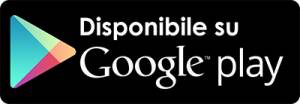
There are those who will shout "dictatorship!“, but we all know that we don't live in a reality like that. Social networks are such as free, even if you have to follow some rules. But what if these rules concern freedom of expression? How should we behave? The EU is discussing this and has proposed, to avoid dangers, a Digital Services Law which would allow platforms to be blocked if necessary.
The EU blocks social networks in case of riots or demonstrations
The European Union has the legal power to block access to social networks. This revelation emerged following protests in France, where the president Emmanuel Macron he said he considered restricting social networks as a tool to fight the unrest. But how can all of Europe do it? The answer lies in the recent implementation of the Digital Services Act (DSA). This law allows Europe to request the removing posts or even blocking entire platforms.
🔴 DIRECT – Thierry Breton, commissioner européen au Marché intérieur, est l'invité du #8h30franceinfo 🎙️
- franceinfo (@franceinfo) July 10, 2023
The answer is @AgatheLambret et @LoSenechal et c'est à suivre sur nos antennas 👇
📻⤵️https://t.co/0naQZOpF52
📺⤵️https://t.co/cEwi3c6zGk pic.twitter.com/32BW3UrJYa
Read also: Italy: regulation of access to social networks for children under 13
Thierry breton, European Commissioner for Internal Market and Services, has explained in an interview with France Info the options available to Europe to prevent the spread of certain messages on social networks. "When there is content that incites hatred or calls, for example, to riot, which also calls for killing and burning cars, you will be prompted to remove the content immediately“, explains Breton. Thanks to the DSA, large platforms will be forced to remove such messages immediately.
If they don't, the companies themselves will immediately sanctioned. "We have teams that can take immediate action. If they don't act immediately, then yes, at that moment we could not only impose a fine, but also prohibit the operation of the platforms in our territory“, continues European Commissioner Breton. From TikTok to Twitter or Instagram, if a hate message is posted on a social network with more than 45 million active users in the European Union, these platforms will have to remove it or face fines of up to 6% of their global revenues. Furthermore, they may be subject to potential blockages in the European Union if they do not comply with the law.
When will the Digital Services Act come into effect?
The new Digital Services Act will come into effect starting from the 25 August and trials and tests are already taking place this summer to see how these blocking and message removals would go about. Twitter has already done this test and Meta has agreed to do the same during this month. “Social networks are not doing enough“, concludes Breton during the interview, pointing his finger in particular at applications such as Snapchat and TikTok, which continue to allow videos glorifying violence in the streets. A premise that both Snapchat and TikTok deny, explaining that they "proactively remove this type of message".








